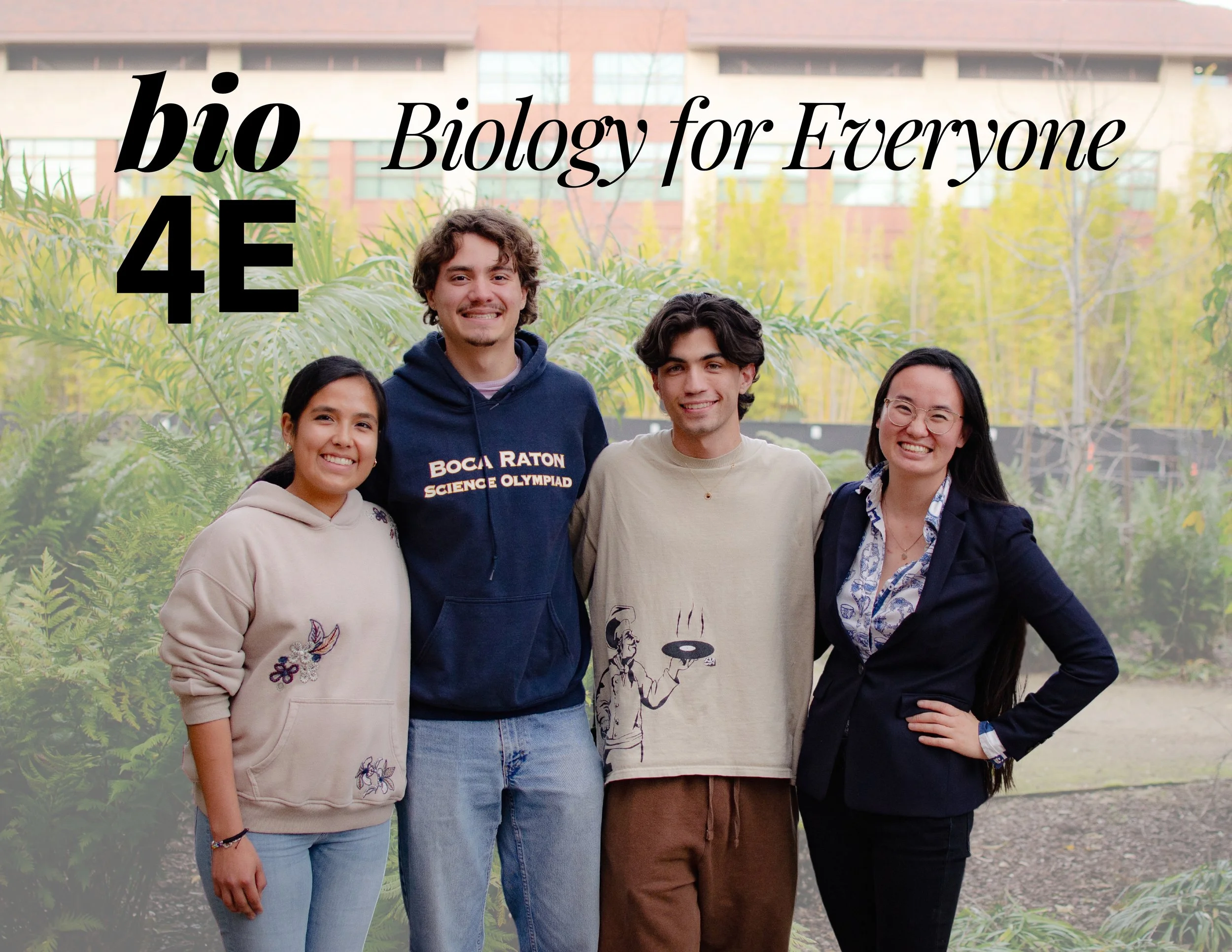
Biology for Everyone (BIO4E)
Our Team
BIO4E is a research community dedicated to advancing biology for everyone.
Biology for Everyone (BIO4E) is a postdoctoral project led by Dr. Callie R. Chappell (Stanford University) and their team to advance biology for everyone (BIO4E) by:
Creating publicly accessible labs at the local level: LABraries.
Creating professional pathways for community-engaged science educators: LABrarians and a curriculum for a national community biology training program.
To realize our objectives, we collaborate with a diverse group of scientists, educators, academics, activists, entrepreneurs, policymakers, and artists to develop and advance a national strategy that makes biology for everyone (BIO4E).
We have a core group of organizers, led by Dr. Callie Chappell and their team of undergraduate researchers. BIO4E is guided by a community advisory board and supported by BIO4E ambassadors, a global cohort of leaders in community biology.
Our values
-
By providing material and educational resources about biology: the science of life, BIO4E hopes to empower individuals to advance global flourishing. Centering biological learning in local settings, such as libraries or gardens, acknowledges biology as a collaborative process that requires connection between people, their communities, and the environment.
-
For everyone to feel empowered with biology, we need to expand what we consider biology to be. We must celebrate everything from the high-tech innovations to ancestral knowledge and even our own lived experiences as a part of biology. Creating a more inclusive intellectual culture will allow for a more holistic understanding of biology by incorporating many truths.
-
Bringing in diverse perspectives from everyone, everywhere enriches the field of biology for all. By embracing everyone, biology can become a unifying front that advances flourishing for all. Through collective solidarity, Bio4E hopes to include our natural environment: planet Earth, so we can acknowledge our responsibilities as stewards of the Earth and kin to the biology in and around us.
-
Biology is a tool that can be used for great purposes, but also for great harm. Therefore, Bio4E plans to advance a culture, curriculum, and infrastructure that ensures that biology is safe and secure. Unethical use of biology should be unthinkable.
BIO4E Organizing Team
-
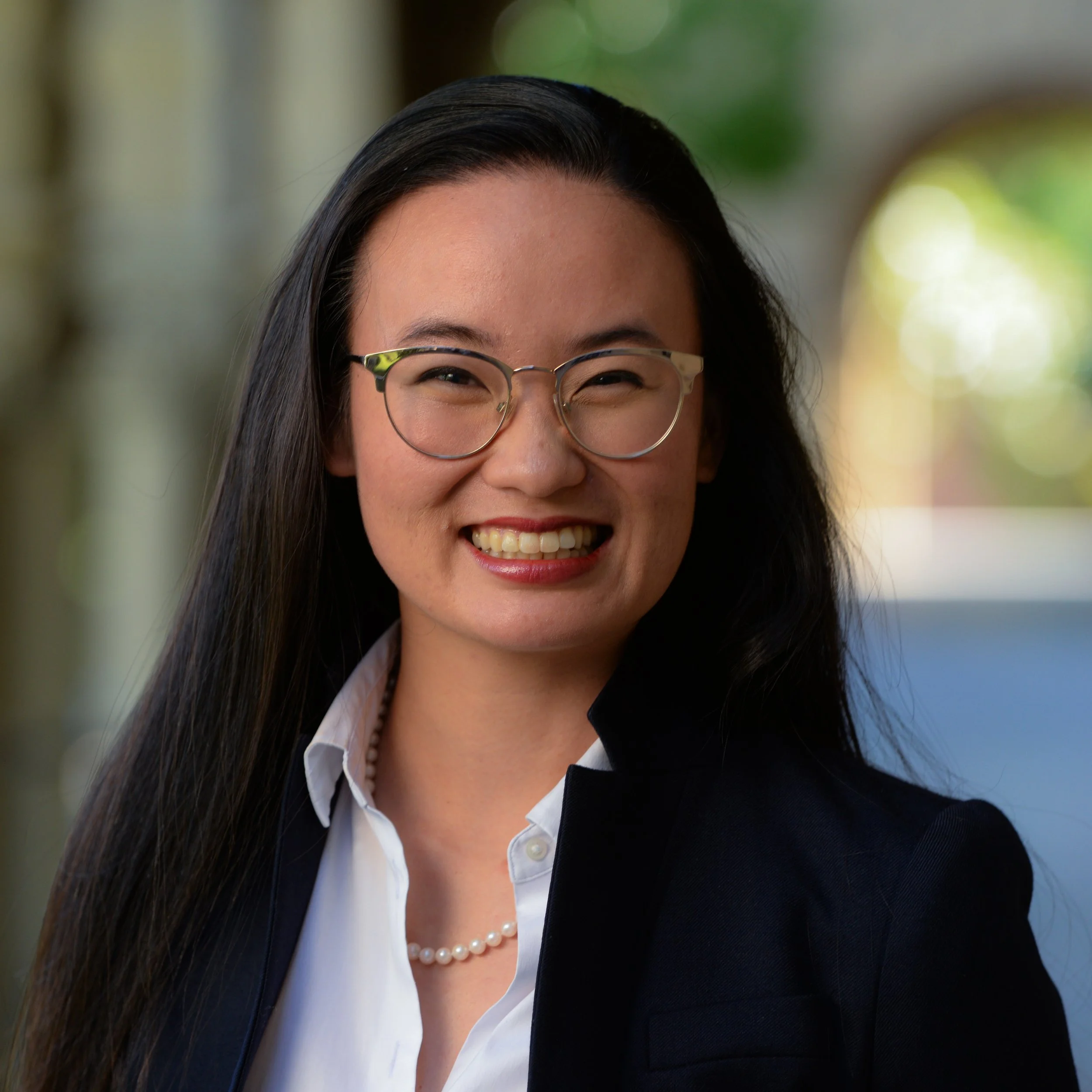
Callie Chappell
Department of Biology, Stanford University
Callie (they/them) developed a passion for biology, art, and culture growing up on the shores of Lake Michigan. Now, they are a scientist, bio-artist and policy researcher as a National Science Foundation (NSF) Postdoctoral Fellow in Biology. Previously, they were a Biosecurity Innovation Fellow at Stanford’s Center for International Security & Cooperation. Callie’s work centers identity and culture in the practice of art and science. Callie studies how genetic variation in environmental microbes influence how ecological communities change over time. Additionally, they develop art/science experiences with youth that inspire artistic expression with biology, such as BioJam Camp. You can find Callie growing sculptures out of mycelium, eating fruits, and foraging.
-

Drew Endy
Department of Bioengineering, d.school, Freeman Spogli Institute, Hoover Institution, Stanford University
Drew (he/him) studies synthetic biology and teaches bioengineering. His goals are civilization-scale flourishing and a renewal of liberal democracy. Prof. Endy helped launch new undergraduate majors in bioengineering at both MIT and Stanford and also the iGEM — a global genetic-engineering “Olympics” enabling thousands of students annually. Endy has served on the US National Science Advisory Board for Biosecurity (NSABB), the Committee on Science Technology & Law (CSTL). the International Union for the Conservation of Nature’s (IUCN) Synthetic Biology Task Force, the World Health Organization’s (WHO) Advisory Committee on Variola Virus Research, and, briefly, the Pentagon’s Defense Innovation Board (DIB).
-

David Kong
Community Biotechnology Initiative, MIT Media Lab
David (he/him) is a synthetic biologist, bio designer, community organizer, musician, and photographer based in Lexington, MA. He is the Director of the MIT Media Lab's Community Biotechnology Initiative. His research explores the multidisciplinary domains of synthetic biology, biological design and art, collective intelligence and movement building, and STEAM learning.
BIO4E Undergraduate Researchers
The vision, research, and direction of BIO4E has been centrally shaped by undergraduate researchers at Stanford University. Watch a video they made about their summer experiences here.
-
Before setting her sights on law school, Ana (she/her) had been enthralled with the symbiotic relationship between humans and nature. She saw the great co-dependence between communities and their biological environment after spending a summer conducting research with the Bayview Hunters Point Community Advocates (BVHP) focusing on environmental justice and the long-term effects of environmental racism. Now, she has chosen to join BIO4E to continue developing their research skills. Taking a biosecurity lens, she hopes to participate in a project meant to empower her Latine community to pursue any biological career aspiration they may have. Passionate about community service and the law, she also interns at the San Mateo Family Law Facilitator Office assisting individuals with family law matters. In her free time, Ana will probably be exploring a new hiking trail or wandering around the concrete jungle.
-
Kevin’s (he/him) interest in biology sprouted due to his great grandmother, who was a gardener and passed her wisdom and appreciation down to him. After his time at Stanford, Kevin hopes to pursue an MD/PhD dual degree with a specific interest in neurosurgery. He joined the Petritsch lab in September of 2023 and has been helping to explore the therapeutic potential of the BRAF V600E peptide vaccine in inhibiting glioma formation and modulating immune response in a novel high-grade glioma mouse model. Additionally, Kevin enjoys visual arts, dance, music, and theater.
-
Angel (he/him) holds a wide range of skills focusing on the implementation of design and engineering principles, including computer-aided design, programming, 3D prototyping, and circuit design. He is interested in the intersection of electrical and mechanical engineering, including fields that relate to mechatronics, digital systems, and human-centered design. On any given day, you can find Angel practicing basketball, watching movies, or playing video games.
-
Esteban (he/him) is very passionate about community outreach, creating opportunities in STEM fields for low-income students, and making science more accessible to all. After his time here, he will pursue an MS in Perfusion Sciences or MD.
-
Alex (she/her) has a passion for combining her interests in medicine and biology with computational skills in order to improve individuals’ health. She hopes to use creativity and problem-solving skills to develop tools that better medicine!
BIO4E Advisory Board
-
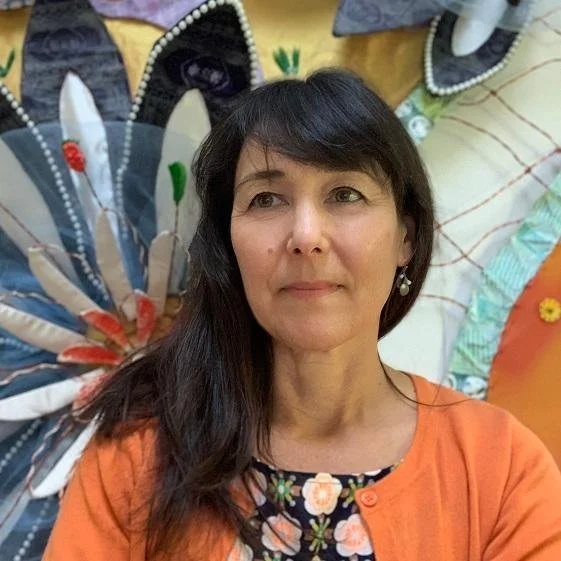
Corinne Okada Takara
Corinne (she/her) is a Honolulu based artist/STEAM educator who creates technology integrated art projects. Her public collaborative work explores the use of modern day artifacts to preserve cultural heritage and memory, and honors the colliding and merging stories that arise in rapidly shifting communities. Corinne specializes in visual art, biomaterial design, and art collaborations that invite dreaming of abundant sustainable futures, and empowering more people to see themselves as shapers of that vision. She is co-founder of BioJam and works out of her Nest Makerspace.
-
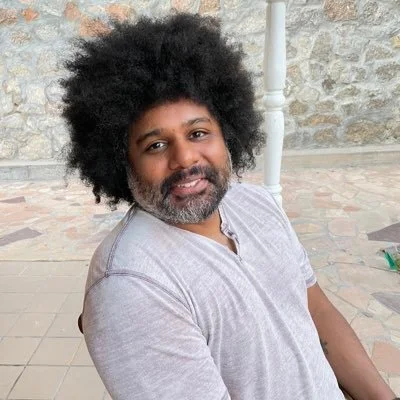
Justice Toshiba Walker
Justice Walker (he/him/el) is an Assistant Professor of STEM education and principal investigator running the ABC Learning Lab at the University of Texas at El Paso College of Education. Justice studies ways to bring the burgeoning synthetic biology field to middle and high school learners in order to support civic engagement and occupational participation. He also develops and studies computer science-based data science in hopes to promote field equity and intellectual diversity.
-
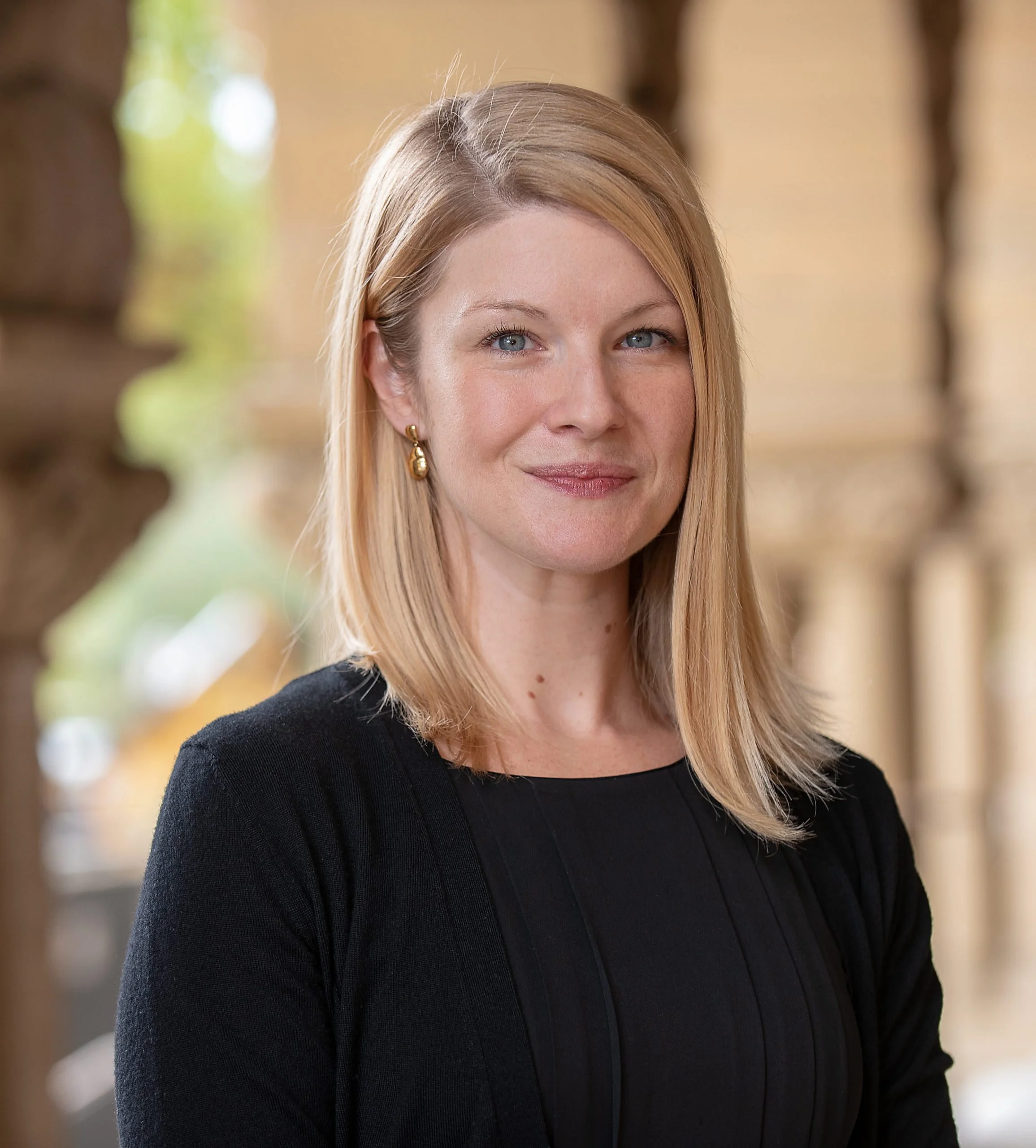
Megan J. Palmer
Megan (she/her) is Senior Director of Public Impact at Ginkgo Bioworks where she leads efforts to ensure that biological engineering is developed with care. She is also an adjunct professor of Bioengineering at Stanford University where she previously served as the Executive Director of Bio Policy & Leadership Initiatives, leading programs to explore how biological science and engineering is shaping our societies, and to guide innovation to serve public interests.
BIO4E Workshop Participants
BIO4E hosted a series of virtual workshops in 2023 convening leaders in community biology, education, biosecurity, and innovation networks. The expertise shared in these workshops shaped our LABraries and LABrarians report.
To engage more broadly than our workshops, we also solicited feedback through a public survey and art project.
-
Richard Ng, Program Manager, IndigiDAO
Andrew Scarpelli ChiTownBio President and Associate Professor, Adjunct at the School of the Art Institute of Chicago
Jasmine Neal, ASAPbio 2024 Fellow, Genspace Community Project Lead
Lisa Scheifele, Executive Director, Baltimore Underground Science Space and Associate Professor and Chair,
Department of Biology, Loyola University Maryland
Wendy Pouliot, President, BOSLab
Jessica McGrath, former President, CounterCulture Labs
Rolando Perez, Research Scientist, Stanford University, Blue Marble Space at NASA Ames
Maria Astolfi, UC Berkeley, Department of Bioengineering
Andrew Scarpelli, ChiTownBio and School of the Art Institute of Chicago, Co-Founder/President and Associate
Professor
Wakinyan Chief, Arts Manager, Cheyenne River Youth Project
Emma Broderick, Executive Director, Puʻuhonua Society
Ellen Jorgensen, co-President, Biotech Without Borders
Maria Chavez, President, BioCurious
Ulisses Santamaria, President, DMV Petri Dish
Leon Elcock III, Synthetic Biologist
Leticia Hernandez, Community garden manager, Local Urban Gardeners (Salinas, CA)
Dezmond Goff, Lab Operations Manager, SoundBio Lab
Henry Jake Foreman, Program Manager, New Mexico Community Capital
-
Isabel Correa, Postdoctoral Fellow, Teachers College, Columbia University
Vanessa Fleury Champagne, Development & Communications, Genspace
Emily Aurand, Director of Roadmapping and Education, Engineering Biology Research Consortium (EBRC)
Natalie Kuldell, Executive Director, BioBuilder
Ravit Duncan, Professor, Rutgers University
Nathan Holbert, Associate Professor, Teachers College, Columbia University
Jennifer Hopwood, Librarian and Educator, SJSU iSchool
Elliot Roth, Founder, Cellsius
Leyla Tavarez, Education Manager, Genspace
Anja Scholze, Scholze Consulting
Latasha Wright, Co-Founder and Executive Scientific Officer, BioBus, Inc.
Ibrahim Aldulijan, Biotech without Borders
Meghan Strazicich, Director of Education, Ignited Education
Keeley Mui, Senior Policy Advisor, National Security Commission on Emerging Biotechnology (NSCEB)
-
Daniel Grushkin, Biodesign Challenge
Yong-Bee Lim, Council on Strategic Risks
Maria Chavez, President, BioCurious
Todd Kuiken, US Congressional Research Service
Lisa Scheifele, Loyola University Maryland, Department of Biology
Tessa Alexanian, International Biosecurity and Biosafety Initiative for Science (IBBIS)
Lisa Rasmussen, Department of Philosophy, University of North Carolina at Charlotte,
Kevin Esvelt, MIT Media Lab
Andrew Snyder-Beattie, Open Philanthropy
Jassi Pannu, Johns Hopkins Center for Health Security
Gigi Gronvall, Johns Hopkins Bloomberg School of Public Health
Susan Cropp, FBI
Sam Weiss Evans, National Security Commission on Emerging Biotechnology
Sarah Carter, Science Policy Consulting LLC
Gerald Epstein, National Defense University
David Gillum, University of Nevada, Reno
George Poste, Arizona State University, Complex Adaptive Systems Initiative
Megan Palmer, Ginkgo Bioworks
Anne Cheever, Director, Technology and National Security, National Security Council
-
Ariel Lindner, ELiS, Learning Planet Institute
Veena Vijayakumar, Interim Executive Director, Biodesign Challenge
Lisa Rasmussen, Department of Philosophy, UNC Charlotte
Richard Ng, New Mexico Community Capital
Sherry Lassiter, Fab Foundation, President and CEO
Thomas Landrain, JOGL - Just One Giant Lab
Jean-Luc Pierite, North American Indian Center of Boston, MIT Department of Urban Studies and Planning
Jenny Molloy, University of Cambridge
Meredith Beckford-Smart, Ph.D, Genspace NYC Executive Director
Amon Millner, Olin College of Engineering
Jason Bobe, DIYbio.org
Dorothy Jones-Davis, Former Executive Director, Nation of Makers
Mary Maggic, Mai Ling
Anne Holland, Space Science Institute
Christopher Spezzano, Transcend Carbon
BIO4E Ambassadors
BIO4E supports leaders that advance Biology for Everyone. Our cohort of BIO4E ambassadors highlight leadership in community-based biology across the US and globe. We chose leaders in biotechnology, community gardens, land-based arts, public health, education, and several youth leaders*.
-
ChiTownBio is dedicated to putting the knowledge, skills, and tools of biotechnology into the hands of all Chicagoans who want to explore the living world and use it to benefit our community. We strive to make sure everyone can participate in the growing biotech sector through the creation of a community biolab and sponsoring and promoting programming throughout Chicagoland.
-
Pu‘uhonua Society is a Native Hawaiian women-led non-profit organization based in Honolulu, Hawaiʻi. Active at the intersections of contemporary art, traditional cultural practices, environmental stewardship, and transformational education, Puʻuhonua Society creates opportunities for Native Hawaiian and Hawaiʻi-based creatives to express themselves and engage with diverse audiences. Through six interwoven initiatives, we support those who serve as translators/mediators/amplifiers of social justice issues within communities.
-
Dambi Dollo University (DaDU) is a leading institution in Ethiopia, renowned for its contributions to education, research, and development, particularly in life sciences. The university's focus in this area spans disciplines such as biology, biotechnology, health sciences, environmental science, and agricultural science. Key aspects of DaDU's involvement in life sciences include advanced research facilities, interdisciplinary collaborations, and impactful community outreach programs.
-
The Natividad Creek Park Community Garden and Learning Lab is a community managed plot of land nestled in a community park in Salinas, CA. The garden was built as a garden based community center to serve as a safe place to grow nutritious food, to promote sustainable gardening, and inspire community improvement. Over the years we have collaborated with biodesign and science-based organizations and programs to host explorations in the garden that builds community confidence in science and bioliteracy. We prioritize multi-generational learning and community knowledge sharing.
-
BOSLab is a community-driven science lab that provides publicly accessible space for scientific exploration. We empower individuals of all backgrounds to engage and practice science in a welcoming environment. BOSLab provides foundational lab skills training, project-based learning, and opportunities to tackle real-world challenges. Our mission is to make science accessible and foster a collaborative environment where innovation and education thrive. We are committed to promoting equity and equality, ensuring that everyone can learn and participate in science.
-
Co-founded by Sakti Subramanian and Dr. Devin Camenares, Great Lakes SynBio aims to promote Synthetic Biology education and training in the Midwest by: (1) connecting regional students, educators, and companies; (2) creating low-cost, project-driven curricula for K-12 and undergraduate students; and (3) influencing national science and technology policy to accelerate the growth of the bioeconomy.
-
The BioBuilder Educational Foundation is a 501(c)(3) established in 2011 by Dr. Natalie Kuldell at the Massachusetts Institute of Technology with support from the National Science Foundation. BioBuilder is committed to access and equity and delivers comprehensive life science education and workforce training to high school students, educators, and industry professionals. BioBuilder is dedicated to helping students access tools and programs that unlock their potential as life science innovators, acquire skills to be able to build with biology, and invent/imagine ways synthetic biology can make the world better.
-
BioBus helps K-12 and college students discover, explore, and pursue science. We focus on students excluded from the scientific community due to factors such as race, gender, economic status, and physical access. Through this work, we envision a world where all people have the opportunity to reach their full scientific potential. We’ve reached 400,000 students at more than 1,000 schools and community organizations since 2008, primarily NYC public and charter schools and as far away as New England, California, and even Rwanda, Egypt and Jordan.
-
Lisa Rasmussen is a philosopher focusing on the ethics of research, particularly in unregulated forms of research. She is currently writing a book on the subject.
-
We help people working on the next big thing in their basements, living rooms, and garages. We do this by providing scientific education, scientific research, and startup development in one nice science and tech community.
-
Led by Jasmine Neal, Jas and Olive is a written collection of floral design principles, affordable DIY arrangements, and musings on plant science. Its intention is to spark a sense of awe and wonder about plant science and climate solutions through floral design.
-
At the Health Equity and Access Lab (HEAL) led by Dr. Chhavi Goenka, at Olin, we think about diseases that haven’t been looked at or that we can look at in a different way. Our goals are: Design, Advocacy, Education (1) To address and increase awareness of inequities in current healthcare (2) To design light-based solutions to enable early and minimally invasive diagnosis of conditions that are often overlooked (3) To design health solutions and advocate for marginalized communities. We are currently developing optical tissue phantoms and hardware to enable early diagnoses of diseases related to the uterus.
-
The Bio Design Challenge is a challenge where students look for a possible problem that’s within their area or not, then it’s the students job to find a solution with biotechnology. We participated in this challenge as high school students where we got to explore different pathways of biology, specifically marine biology. Our project consists of a calcium carbonate and concrete mixture over a small artificial shape structure to increase the amount of coral reefs since they are dying rapidly due to climate change; our project’s name is S.A.S.S.
-
Biodesign Challenge After-School is a program of Biodesign Challenge, an international education program that works with high school and college students at the intersection of Biology, Tech, Art, and Design. Run by founding organizer and program director, Veena Vijayakumar, BDC A-S focuses primarily on youth and teachers of color at Title 1 high schools in the US. The program is open to those who are interested in engaging in discussions and creating projects around ethics in biotechnology; interspecies relationships; sustainable and equitable design; and community-based climate action.
-
Public Health Specialist and PMP professional with extensive hands-on experience in RCCE/SBC, RMNCAH-N, HSS & Resilience building (DRM).
-
Genspace is the world’s first community biology lab — a place where people of all backgrounds can learn, create, and grow with the life sciences.
Since 2009, we have served the greater New York area by providing hands-on STEAM education programs for youth and adults, cultural and outreach events for the public, and a membership program to support New York’s community of creatives, researchers, and entrepreneurs. Our programs demystify scientific processes, provide a platform for innovation, and cultivate the next generation of life sciences leaders in emerging global technologies, such as biotechnology, neuroscience, epidemiology, genomics, and many more.
-
Mikaela is a high school student who is passionate about making the world a better place with biology!
